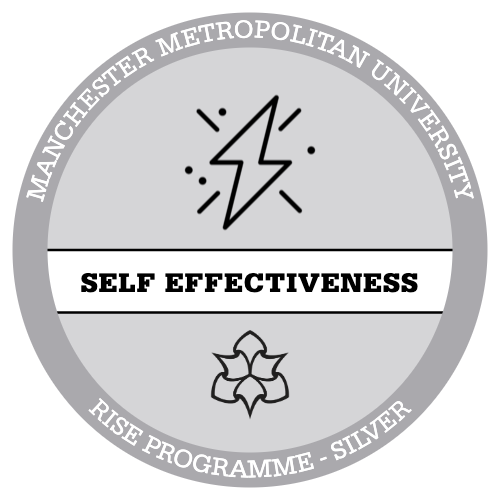 //REWORK THIS
//REWORK THIS
Internal Psychology Research Seminar - 15 October 2025
Hi everyone,
You are invited to attend the next seminar from the Psychology Seminar Series on Wednesday 15 October 2025, 11:30-12:30pm in BR 2.07.
Attendance will be collated at the end of the seminar and RISE points will be allocated accordingly.
This seminar will feature two short talks, followed by discussion and Q&A. Please see below for details:
______________________
Rabeya Riaz, PhD Candidate, School of Psychology
Voicing silences: Izzat and the lives of British Pakistani Muslim women
This research investigates the cultural construct of izzat (honour) and its impact on the lived experiences and psychological wellbeing of British Pakistani Muslim women in the UK. Izzat is often used to guide ideas of respect, reputation, and morality within families and communities, but it can also place pressure on women and limit their freedom. Drawing from an insider perspective, this study is situated within an intersectional and postcolonial feminist framework. It is guided by Silences Framework, which focuses on uncovering voices, experiences, and perspectives that are often hidden or marginalised in mainstream research.
The study was conducted in two sequential phases using a qualitative design. Phase 1 involved semi-structured interviews with community and religious leaders (both male and female) who play a significant role in shaping cultural norms and moral expectations within South Asian diasporic contexts. Thematic analysis was used to examine how izzat is conceptualised by these leaders and how its enforcement shapes community expectations around gender, behaviour, and respectability.
Phase 2 focused on the voices of young British Pakistani Muslim women, capturing their personal experiences of navigating izzat-based expectations in their everyday lives. Using the Voice-Centred Relational Method (Gilligan et al., 2003), this phase focused on the relational, emotional, and narrative dimensions of participants’ accounts, highlighting how their voices are shaped, silenced, or resisted within honour-based cultural frameworks.
Together, the two phases provide a multi-layered understanding of izzat from those who uphold and define it, to those who live within its constraints. The findings reveal significant tensions between community ideals of honour and individual wellbeing, particularly for women navigating issues of autonomy, identity, and mental health in diasporic settings. This study contributes to understanding how honour influences social control and gender inequality and highlights the need for more culturally nuanced approaches to supporting British Pakistani Muslim women’s psychological health.
Dr. Matt Brooks, Senior Lecturer, School of Psychology
Strengths Matter: Resilience and Wellbeing in the United Kingdom and Ireland
Over the past two decades, positive psychology has made significant progress in identifying the strengths that support resilience. However, we still know relatively little about which specific strengths are most helpful for people recovering from adversity. This study examined 24 character strengths from the Values in Action framework, alongside five additional psychosocial and environmental strengths drawn from resilience research. A total of 1,440 adults from the UK and Ireland completed an online survey assessing their strengths, experiences of adversity (interpersonal victimisation and institutional betrayal), and current functioning (subjective wellbeing, posttraumatic growth, and health-related quality of life). Findings revealed that strengths explained more variance in functioning than adversity. In particular, hope and zest were consistently linked to better functioning across all three outcomes. Other strengths such as sense of purpose, gratitude, social support, mindfulness, and psychological endurance, were also positively associated with at least one outcome. Interestingly, some strengths, including humour, spirituality, fairness, and leadership, were linked to poorer functioning in certain contexts. These results suggest that not all strengths are equally beneficial when it comes to healing from adversity. The findings have important implications for resilience theory, strengths-based interventions, and culturally informed psychological practice in UK and Irish contexts where lived experience and cultural narratives may shape how strengths are expressed and experienced.
____________________
Any questions, please contact Danielle Labhardt (d.labhardt@mmu.ac.uk) or Matt Brooks (m.brooks@mmu.ac.uk).
Associated Badges:
In A Nutshell...
- Engage in person... on a Wednesday between 11 and 12 in the Brooks building
- Find out... about the different types of research being conducted within the School of Psychology
- Learn... what it's like to conduct psychological research
- Gain awareness... of how psychological research can address real world problems
- Ask... questions to the experts within the field
- Network...with other students and researchers
- Earn up to 5 Rise points ... which can be recognised within your degree.
Schedule
-
11:30 to 12:30 on 15/10/25 - BROOKS 3.81
Attend an event In this scheduled event you will learn about the different types of research being conducted within the School of Psychology.







